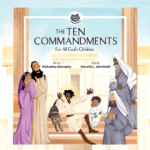
The Ninth Word is a fitting word for our mediated age.
We’re spun by a whirlpool of rumor, innuendo, false accusation, slander, libel. People are tried and condemned by online lynch mobs. We like or share Tweets and Facebook posts even though we can’t possibly confirm their accuracy. Luther said that the Ninth Word requires us to put “the best construction on everything,” to give others the benefit of the doubt. We exaggerate the stupidity or malevolence of ideological adversaries to score points and win honor in Twitter combat. Officially committed to the Ten Words, the church does no better. Christians fire up the digital kindling to burn supposed heretics without due process, humility, or care.
Not by accident but by design, social media encourages violations of the Ninth Word.
This isn’t merely an improper use of neutral technology. YouTube gives preference to controversial videos, the more outlandish the better. Twitter is a medium of self-presentation, often self-preening, where every user plays a game of “brand management.” Not by accident but by design, social media encourages violations of the Ninth Word.
The Ninth Word and Loving Truth-Telling
Truth-telling isn’t necessarily “nice.”
We learn to be truth-tellers when we learn to see clearly and when we break the habit of covering our cowardice with the pious excuse of “love.” Immediately after Yahweh forbids Israelites to hate their countrymen (Lev 19:17) and immediately before he tells them to “love your neighbor as yourself” (Lev 19:18), he tells them to “reprove your neighbor” (Lev 19:17 nasb). Prophets like Nathan (2 Sam 12) and Elijah (1 Kgs 17–19) weren’t nice. They really performed the cliché: they spoke truth to power. And their blistering words carried divine power, to pluck up and plant, to demolish and build (cf. Jer 1:10). Truthful correction is an expression of love, not hate. If you tell the truth, you will create conflict, and then you are called to be a peacemaker. But true peace can be won only if the truth shatters the false peace of the lie.
Here we stumble on the flip side of today’s social disorder. While we gleefully spread gossip on social media, we tiptoe gingerly around the truth. We say we’re tolerant and want to avoid triggering. But we’re cowards, and hateful cowards to boot. If we can’t tell the truth, we cannot identify real evils. If we’re forbidden to name problems, we cannot propose solutions.
The Ninth Word and the Neighbor
The second half of the Decalogue deals with love for the “neighbor,” but the elusive neighbor comes out of hiding for the first time in the Ninth Word. That tells us something about neighborly relations. We may have a fairly easy time avoiding murder, adultery, theft. Most of us don’t get into fistfights with our neighbors or slip a silver fork into our pocket during a dinner party. Most of our interactions with neighbors take place in speech. Wisely, the Lord’s first explicit test of our love of our neighbors is, How do we speak about and to them?
This post is adapted from The Ten Commandments: A Guide to the Perfect Law of Liberty by Peter J. Leithart (Lexham Press, 2020).







